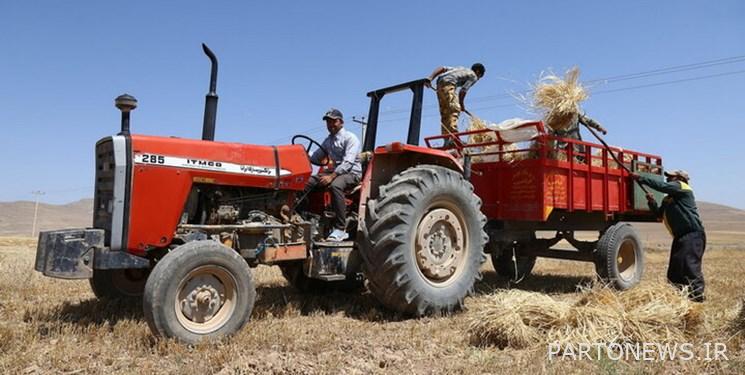The need to build fuel stations for agricultural machinery in rural areas

According to Fars News Agency, quoting the Ministry of Jihad for Agriculture, Kambiz Abbasi stated that the fuel required for the agricultural sector is about 3.8 billion liters per year and added: of this amount, about 2.4 billion liters of diesel is consumed in the field of mechanization, which in total Equivalent to 10% of diesel consumption in the country in the agricultural sector.
He said that the creation of infrastructure and fuel distribution stations for agricultural machinery has been neglected over the past decades, while the dignity of the agricultural sector and the rural community should be preserved like the urban community in receiving fuel.
Abbasi added: “Currently, there are a number of vendors in the villages to distribute fuel for agricultural machinery that do not have the appropriate equipment and facilities for fuel distribution, and farmers face restrictions on fuel delivery.”
He considered the delivery of fuel to farmers in the form of remittances by these sellers as another problem in the field of fuel supply to the mechanization sector and said: “There is a possibility of canceling fuel remittances and non-delivery by sellers at any time Do not reach.
Abbasi called on the officials of the Ministry of Oil and MPs to plan and take action to create facilities for agricultural machinery in rural areas, considering the development of mechanization in the agricultural sector and its role in providing food security, in order to provide facilities in these stations such as urban society and fuel delivery process. Facilitate farmers.
He also suggested that the construction of fuel distribution infrastructure for agricultural machinery in the first phase start from the production poles.
The head of the Center for Agricultural Mechanization Development also acknowledged the issuance of fuel cards for farmers: “If agricultural machines have license plates, farmers will not be restricted from receiving fuel cards.”
He said that 430,000 tractors and combine harvesters have been registered in the country in the last five years, adding that about 160,000 to 170,000 other tractors and combines remain for registration and we hope that by the beginning of 1401, the registration of this The machines will also be done with the cooperation of the traffic police and all agricultural machines will be documented and identified.
Abbasi continued: with the license plates of agricultural machines, the process of fuel distribution and supply will be facilitated and some of the problems in the field of fuel will be solved.
He added: “We are looking to inject fuel quotas for all tractors and combines in the country into farmers’ fuel cards.”
“Currently, farmers do not have a fuel card, and some new agricultural machines may have a fuel card that is not active,” said the head of the Agricultural Mechanization Development Center.
He pointed out: This year, the Ministry of Jihad for Agriculture, in order to facilitate receiving fuel in cooperation with the Petroleum Products Distribution Company as a pilot in five provinces of the country in the form of bank cards, injected the fuel needed by farmers, which was positive.
Abbasi, meanwhile, praised the recent parliamentary resolution on delegating responsibility for determining the amount of fuel required for agricultural machinery and units to the Ministry of Jihad Agriculture, as well as removing the insurance requirement for primary license plates as part of a plan to strengthen food security and remove barriers to agricultural production. He said: “This parliamentary resolution can be effective and facilitative in the development of the agricultural mechanization sector and ensuring food security.”
Acknowledging that the instructions for estimating the fuel required by the agricultural sector have been compiled, he said: The Ministry of Jihad for Agriculture has prepared comprehensive technical instructions based on the area under cultivation, production, number and capacity of tractors and combine harvesters and hours of agricultural operations agreed by the company. There is also a distribution of petroleum products.
Abbasi said: “In the past, the country’s fuel sector used to audit the fuel quota of the agricultural sector according to the country’s situation, but with the entry into force of the parliament’s resolution on” strengthening food security and removing barriers to agricultural production “, any amount of fuel specified by the Ministry of Jihad Agriculture And determine that it should be delivered to farmers by the country’s fuel sector.
end of Message / b
You can edit this post
Suggest this for the front page
.

